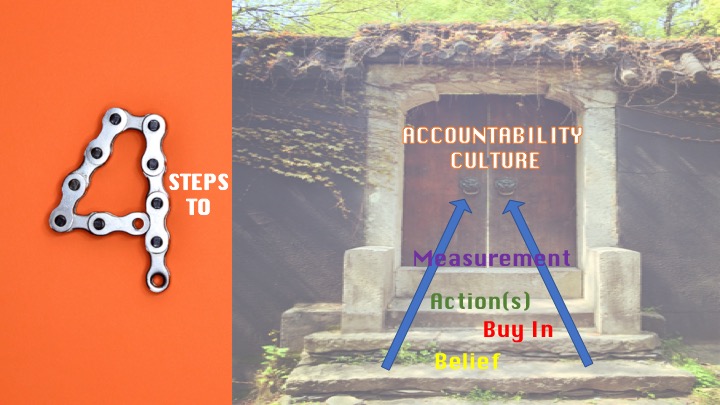Are You Prepared For Deaths?
No, I don’t want to be morbid or bum out my followers looking for sage business council. Hey, my favorite webcast these days is John Krasinski’s Some Good News so I agree we have to keep our spirits buoyed but a grim reality that is, and will be, surrounds us. That is death, it is part of the story and part of life yet when it is so ever-present it gives us reason to consider it’s facets. That preparation, for all its presentations, may well be the difference between tragedy and disaster. Though unwelcome it is wise to deal with it before it’s upon you.
Death in the Spring of 2020 has several considerations. While there’s enough tears shed today in living stress and apprehension (as the spouse of a NYC hospital nurse I live that daily) there’s also a time for sobering looks at the worst subject of all, people are dying in abundance. That means a well-adjusted mind can consider what can be done in anticipation. While always hoping for the least possible impact is good, have you heard the “prepare for the worst” cliche enough to drive you to action?
The impacts to consider are first, your own mortality. While most people with even modest means are aware of life insurance and health insurance as bedrock responsibility only about a quarter of our working population has a valid last will. It does correlate higher to age and wealth and the idea that with much to lose comes much responsibility to disperse and manage. Regardless of what you own and how your state manages estates there are likely things of both monetary and sentimental value that if addressed in advance can present piece of mind should illness arise. Simple things like a list of contacts, papers and passwords that can be document and kept in a “Just In Case” envelope where it is known to be can be of great impact, god forbid.
Similarly, less than 20% of the adult population has documented end of life wishes. That could play out with resuscitation, remains handling or other issues but why it is so crucial around Covid 19 is so many pass away while intubated and unable to communicate or have family bedside. Going through the exercise when healthy is not just preparation for uncertainty but it connects you to what is important to you as you live your life, hopefully for a very long time.
Your own mortality is surely your responsibility and, like it or not, it’s never an if only a when, today’s plague has simply brought that into focus. The more likely dealings with ultimate loss however, are going to present as loss of friends, family, co-workers, colleagues and if not direct relationship what are the odds you’ll escape a second degree of separation?
Work at home is removing much of the communication stream from business the chances are something near past normal will eventually return. What will tragically transpire in the interim? Like commanders in war battles a human inventory of what has happened will be required. With memorials and farewell services missing, postponed or virtual there will be a new paradigm in dealing with grief. Have you thought about that?
The truth is that even if death does not directly touch you we have to acknowledge that in many cases the threat of death, the news of death and fear of death will have a psychological impact for many. Hopefully it will be a peaked temporary condition but lasting impact to some degree is more likely. I was walking across 5th Avenue on my way to my office on September 11th only to look downtown in befuddled horror as smoke filled the downtown horizon. Those events played out in a compressed sequence, a quick stab compared to today’s thousand cuts. Yet it was when I went with a colleague and friend to try and donate blood late that afternoon that something hit me. The lines were around the block with the best intentions of gracious souls when a hospital worker came out and said their blood bank was full and they weren’t expecting to need it. There would be no mass injured only dead and living. I remember thinking I knew things would now never be the same, and they weren’t.
On the tomorrow when we awake from this world horror we will all surely know the same to again be true. What we knew will be forever changed and thus so are we. Death will be a part of that reality, perhaps we will celebrate if we curtail the ghastly predictions, hopefully we will. Still, for many there will be no escaping the final plight regardless the mitigation. If it is your destiny I hope you have, or will now, prepare as best you can. That means minimizing your risks, taking care of your physical and mental self but also (legally) documenting your final wishes. It also means that as we reconnect we will have to assess the battlefield damage. The counted losses may turn out to be easier to deal with than the PTS that may lie in wait.
Being prepared to get back to normal best and fastest means having been prepared to deal with the impact of what has become far from normal. It is not to be dwelled upon or a cause for depression but is there to be considered. The hardest part of the human experience is loss. How we minimize our loss on others and how we will help others survive their loss whether in business or in personal circles we can’t leave unspoken what is critical to comprehend and plan for. It’s my hope whomever reads this will be spared the turmoil but acknowledging obstacles is the first step to overcoming them. Be safe, be well.
©2020 MyEureka Solutions LLC. For help with BUSINESS THERAPY insights contact or follow @TomFoxTrainer, on LinkedIn or at www.myeurekasolutions.com/thoughts. Our current book: Business Therapy: Ideas and Inspirations To Help Build Sales, Leadership, Management, and Personal Performance is available on Amazon.










